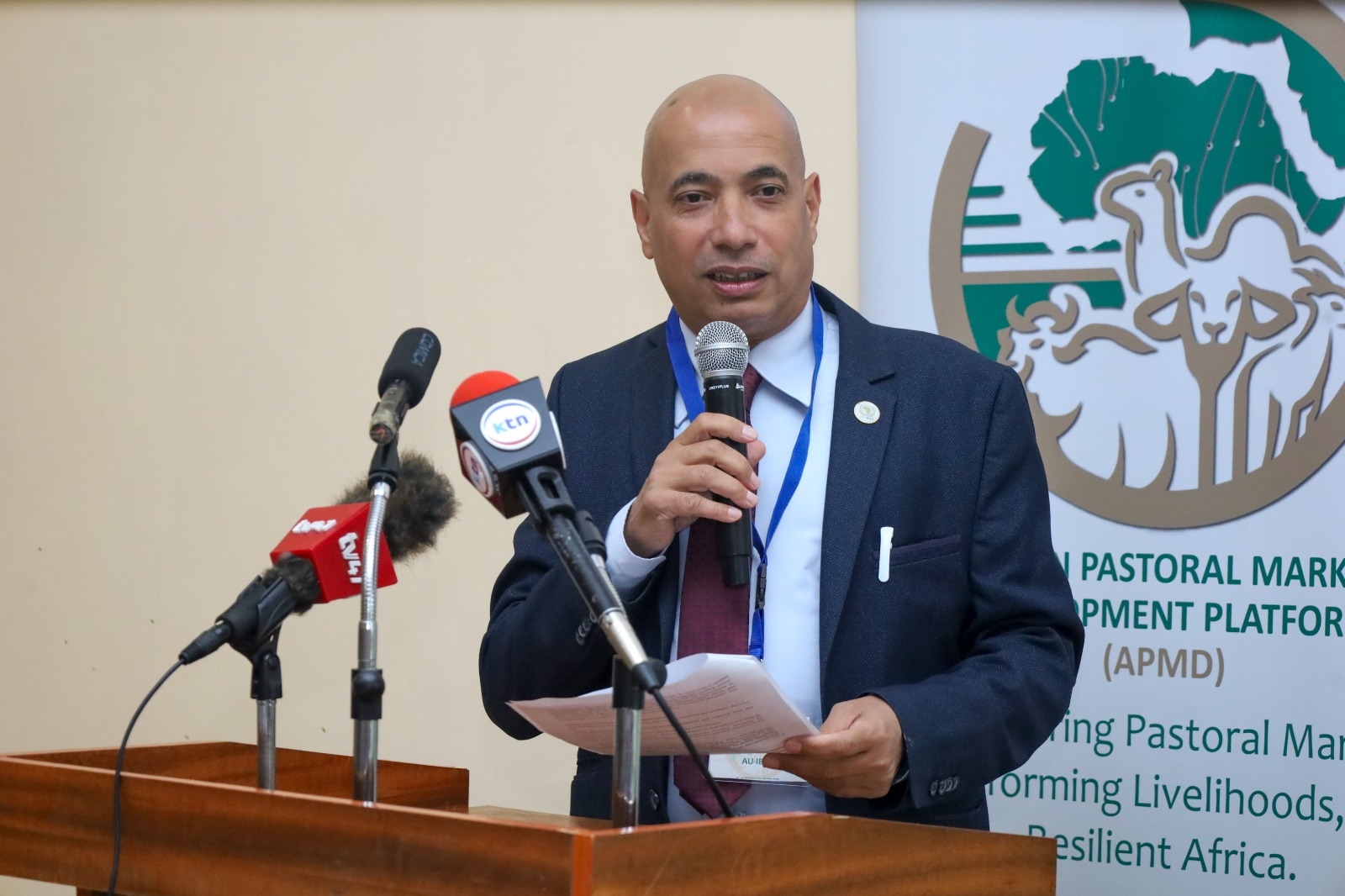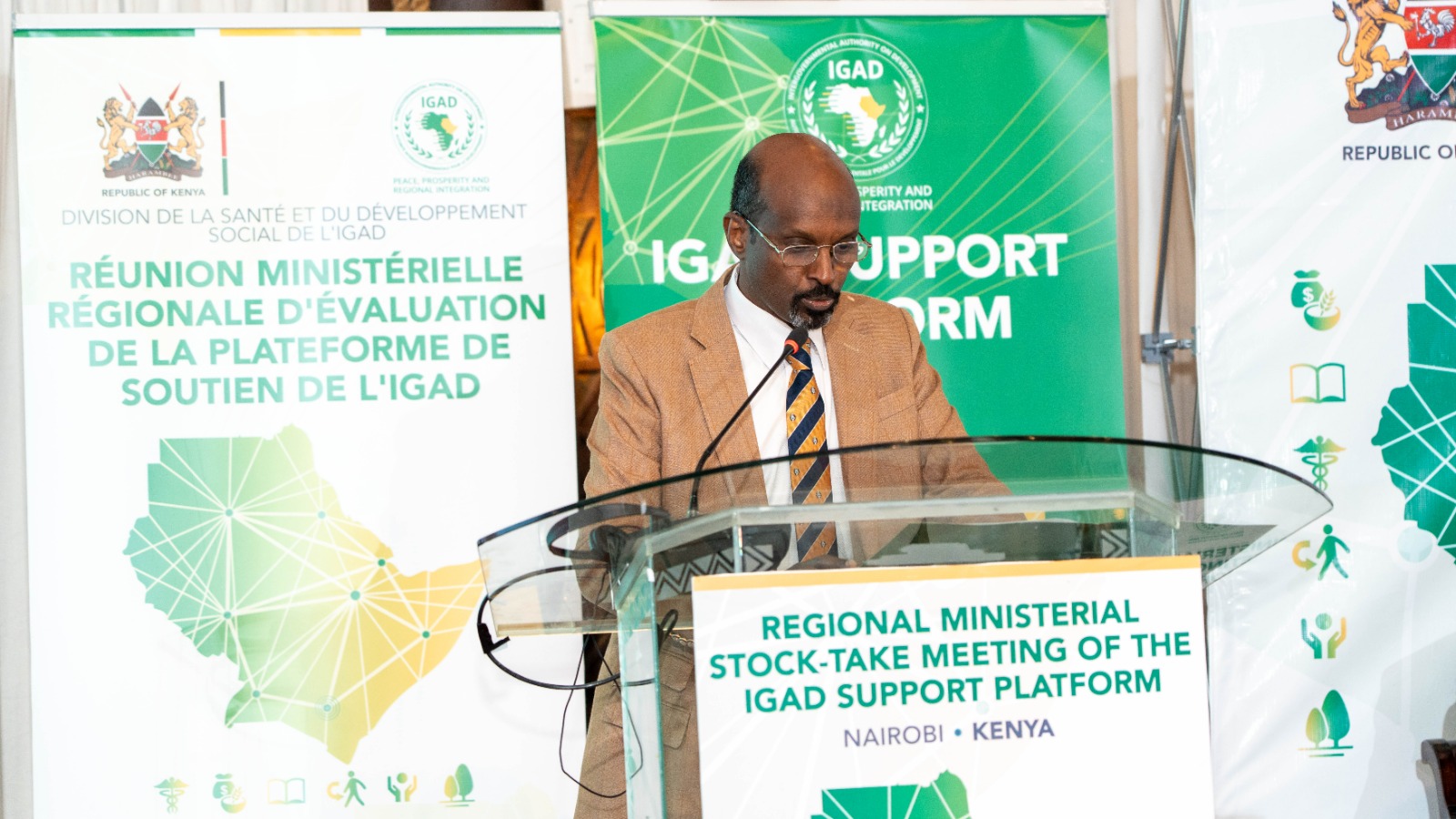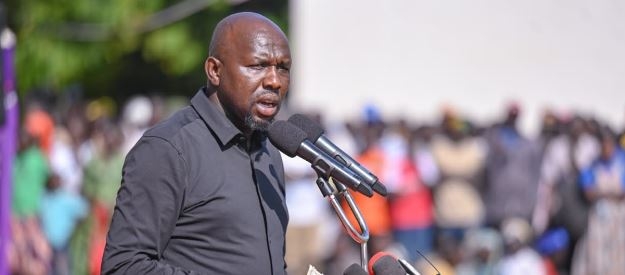

The Intergovernmental Authority on Development (IGAD) has
raised the alarm over escalating forced displacement in the Horn of Africa,
warning that regional progress is being threatened by surging conflicts,
climate shocks and shrinking global humanitarian support.
Speaking during the 2025 Ministerial Stocktake Meeting of
the IGAD Support Platform, held in Nairobi, IGAD Director for Health and Social
Development Amb. Moussa Meigague said the region is facing intensified
pressures that demand stronger coordination and renewed commitments from
governments and partners.
Meigague noted that while the Support Platform has made significant
strides in implementing the Nairobi Action Plan and thematic initiatives in
education, livelihoods, self-reliance and health, the overall displacement
situation has deteriorated.
“The number of displaced population in the region continues
to rise, mainly as a result of conflicts, including the war in Sudan, but also
as a result of climate change and natural disasters,” he said.
According to IGAD, the region now hosts more than 25 million
displaced persons — including over 19 million refugees and 6 million internally
displaced people (IDPs).
The Sudan conflict alone has uprooted more than 10 million
people within the country and across its borders.
The IGAD official also expressed concern over the global
decline in humanitarian funding, saying the shift poses severe risks for
countries already grappling with food insecurity, fragile health systems and
ongoing crises.
“Across the globe, we are experiencing declining support for
foreign assistance and humanitarian operations… the aid suspension raises
pressing concerns about how countries in the region will cope with the
escalating crisis,” Meigague said.
He added that governments and relief agencies are scrambling
to fill the gaps left by unpredictable aid flows.
The meeting also highlighted coordination gaps in regional
responses to displacement.
Meigague acknowledged that despite multiple initiatives at
national and regional levels, IGAD still lacks a comprehensive platform to map
actors, track investments or monitor who is implementing what interventions.
“We need to improve our mapping of investments and
initiatives and information sharing,” he said, describing this as a core
objective moving forward.
Emerging issues such as climate-induced mobility, rapid
urbanization and the humanitarian-development-peace nexus are also reshaping
displacement dynamics.
IGAD announced the admission of new core-group members,
including Cities Alliance and UN-Habitat, and expressed gratitude to partners
such as the EU, Sweden, the World Bank, Germany, UNHCR, UNDP and IOM.
Meigague urged member states to use the stocktaking process
to chart clearer recommendations and ensure the platform remains aligned to
“displacement realities” across the region.
“I hope we can come up with clear recommendations on how we
can strengthen our collective responses,” he said.
UNHCR officials said the region has demonstrated sustained
political will through the adoption of progressive frameworks, including the
Nairobi Process, the Kampala Declaration on jobs, the Djibouti Declaration on
education, and the Mombasa Declaration on health.
UNHCR noted that the forum is critical for translating
reports into actionable insights that strengthen national and regional
commitments.
Key achievements highlighted include Ethiopia’s new Refugee
Status Determination Directive, Kenya’s 2024 General Refugee Regulations, and
Somalia’s Federal Refugee Law passed in March 2024.
South Sudan was also praised for acceding to the 1954 and
1961 Statelessness Conventions, fulfilling a major GRF pledge.
UNHCR further noted increased inclusion of refugees in
national statistics, with countries such as Kenya, Ethiopia, Djibouti, and
South Sudan integrating displaced populations into national surveys and census
exercises for the first time.
Uganda’s settlement model, Kenya’s Shirika Plan, and
Ethiopia’s Mekatet Roadmap were cited as strong examples of inclusion-focused
reforms.
However, the agency warned that severe under-financing
threatens to stall progress.
“UNHCR has received only 31% of the resources required this
year,” the agency cautioned, noting that essential protection, health, and
education services have already been scaled down across the region.

















